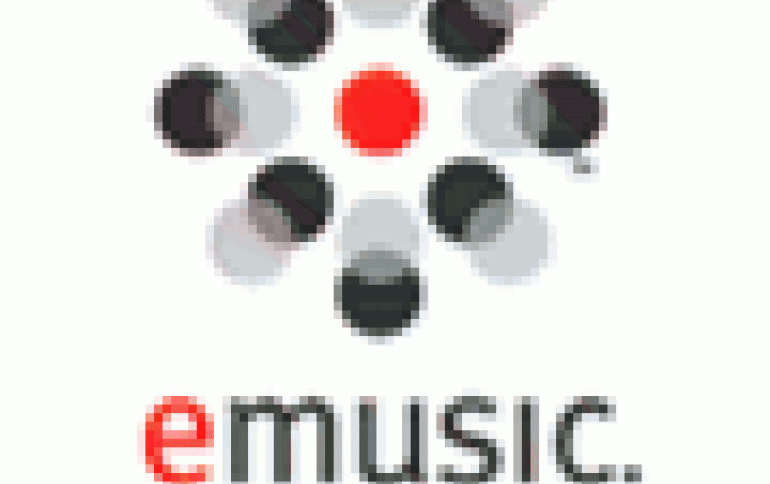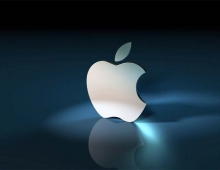
Euro Debut for iTunes Challenger
Digital music download service eMusic is launching across Europe on Tuesday in a bid to become the top alternative to market leader iTunes, the same distinction it holds in the United States.
EMusic will be the first service to launch in all 25 European Union member nations, going head-to-head with iTunes in big markets such as Germany and Britain and bringing the first legal downloading to smaller ones including Malta and Hungary.
The service differentiates itself as the only one on a large scale delivering songs in the MP3 format, meaning they can be played on any portable music player including the iPod. Apple's iTunes can only be used with an iPod.
It appeals to a generally older audience than iTunes and is especially popular with jazz and classical aficionados, who tend to be in the 25-54-year-old age bracket eMusic targets.
EMusic carries 1.7 million songs from 8,500 independent record labels, including tracks from Johnny Cash, Bob Marley, Franz Ferdinand and Bjork.
None of the four major music companies, which are responsible for about three-quarters of the music sold worldwide, has agreed to supply songs to eMusic because of the digital rights protection issue.
"Just as Sundance has branded independent film as a genre, we are doing the same with independent music," Chief Executive David Pakman said in an interview.
He said eMusic continues to hold talks with Vivendi's Universal Music, Sony BMG , EMI Group and Warner Music , but until they agree to distribute in the MP3 format, it will not carry their songs.
With about 13 percent share in the United States, the world's biggest music market, eMusic outpaces well-known brands including Rhapsody, MSN Music, Napster, Yahoo and AOL, but remains a distant second from iTunes' 60 percent share.
"Our goal is to very quickly in the EU establish the position we have achieved in the U.S.: to be the number one seller of independent music and to be the number two digital music service overall," Pakman said.
New York-based eMusic is also planning to launch local-language download services in Germany, France, Italy and Spain in 2007.
The European sites will charge a monthly subscription fee that ranges from 8.99 pounds ($16.79), or 12.99 euros, for 40 downloads, to 14.99 pounds, or 20.99 euros, for 90 downloads.
Unlike most other subscription services, however, eMusic consumers own the songs they download. Subscribers to many other services lose their libraries if they stop paying the monthly fee. Users of iTunes buy songs and albums a la carte without any monthly costs.
EMusic worked with Dutch author society Buma/Stemra to create the first pan-European licensing agreement, enabling it to launch in 25 countries simultaneously.
Under the deal, eMusic will track country-by-country sales and pay publishing royalties to Buma/Stemra, which will then distribute them to author societies in other EU nations.
The service differentiates itself as the only one on a large scale delivering songs in the MP3 format, meaning they can be played on any portable music player including the iPod. Apple's iTunes can only be used with an iPod.
It appeals to a generally older audience than iTunes and is especially popular with jazz and classical aficionados, who tend to be in the 25-54-year-old age bracket eMusic targets.
EMusic carries 1.7 million songs from 8,500 independent record labels, including tracks from Johnny Cash, Bob Marley, Franz Ferdinand and Bjork.
None of the four major music companies, which are responsible for about three-quarters of the music sold worldwide, has agreed to supply songs to eMusic because of the digital rights protection issue.
"Just as Sundance has branded independent film as a genre, we are doing the same with independent music," Chief Executive David Pakman said in an interview.
He said eMusic continues to hold talks with Vivendi's Universal Music, Sony BMG , EMI Group and Warner Music , but until they agree to distribute in the MP3 format, it will not carry their songs.
With about 13 percent share in the United States, the world's biggest music market, eMusic outpaces well-known brands including Rhapsody, MSN Music, Napster, Yahoo and AOL, but remains a distant second from iTunes' 60 percent share.
"Our goal is to very quickly in the EU establish the position we have achieved in the U.S.: to be the number one seller of independent music and to be the number two digital music service overall," Pakman said.
New York-based eMusic is also planning to launch local-language download services in Germany, France, Italy and Spain in 2007.
The European sites will charge a monthly subscription fee that ranges from 8.99 pounds ($16.79), or 12.99 euros, for 40 downloads, to 14.99 pounds, or 20.99 euros, for 90 downloads.
Unlike most other subscription services, however, eMusic consumers own the songs they download. Subscribers to many other services lose their libraries if they stop paying the monthly fee. Users of iTunes buy songs and albums a la carte without any monthly costs.
EMusic worked with Dutch author society Buma/Stemra to create the first pan-European licensing agreement, enabling it to launch in 25 countries simultaneously.
Under the deal, eMusic will track country-by-country sales and pay publishing royalties to Buma/Stemra, which will then distribute them to author societies in other EU nations.





















